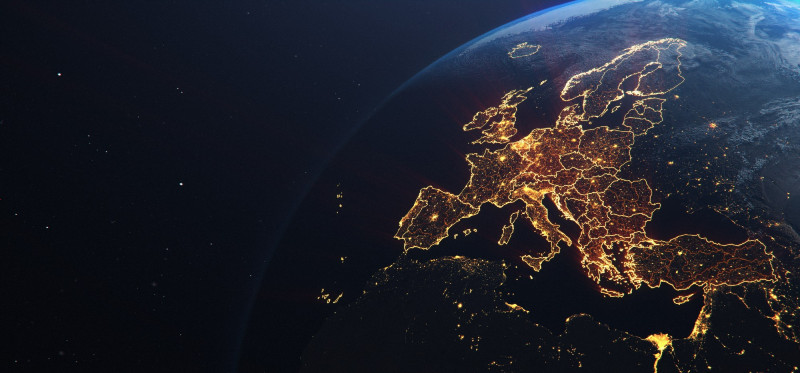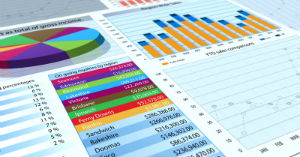
If you are an international digital marketer with experience targeting the European market, then you will know that you cannot treat “Europe” as one singular entity.
As well as the obvious differences in language between countries, there are also variations in their digital landscapes that you need to take into account when creating your digital marketing strategies.
Each strategy must be tailored to each individual market, to ensure you are reaching and targeting each audience in the way that resonates with them most profoundly.
That is why I have created the Webcertain search and social report 2024: Europe, an in-depth report that goes country by country, providing an overview of the most important points all European digital marketers should know in 2024.
This blog post will go through some of those key points. Let’s dive into it!

1. Internet penetration in Europe in 2024
Internet penetration rates differ widely across Europe. Whilst there are many countries with almost full internet penetration, there are others where the market is still developing and where it is still important to include offline methods as part of your marketing strategy.
The countries with the highest internet penetration rates in the report are:
- Estonia: 98.2% internet penetration rate
- Norway: 98.0% internet penetration rate
- Denmark: 96.4% internet penetration rate
- Lithuania: 96.4% internet penetration rate
Meanwhile, the countries with the lowest internet penetration rates in the report are:
- Bulgaria: 69.6% internet penetration rate
- Romania: 72.3% internet penetration rate
- Greece: 78.8% internet penetration rate
Before creating a marketing strategy for a new market, make sure you check the internet penetration rate. This will give you a better idea of how important (or not) offline mediums will be as part of your overall marketing efforts.
2. Search engines in Europe in 2024
The search engine landscape in Europe is overwhelmingly dominated by Google, meaning that as a general rule of thumb, Google should be the focus of your SEO and PPC efforts in this region.
However, you should not be surprised that there is some variation between countries, and there are actually some countries where you may want to include other search engines alongside Google as part of your search engine marketing efforts!
Firstly, there is Belgium, where Bing is surprisingly popular, accounting for 18% of the search engine market share.
There is also the Czech Republic, where its homegrown search engine Seznam makes up 12% of all searches in the country.
An honourable mention also goes to DuckDuckGo. Whilst this privacy-focused search engine does not have a large presence in any of the countries in the report, it nevertheless made third place in the search engine usage rankings in the following markets: Switzerland (with 1.2% of the search engine market share), Poland (0.6%), Croatia (0.3%), Slovenia (0.3%) and Slovakia (0.2%).
3. Social platforms in Europe in 2024
And last but certainly not least, let’s look at the social media and messaging landscape in Europe.
As a general trend, we saw the following platforms commonly being the top five most popular across many European countries:
- Facebook Messenger
- TikTok
We also saw some other platforms popping up occasionally:
- Snapchat had a strong presence in Scandinavia, where it appeared in the list of top five most popular platforms in Denmark, Finland, Norway and Sweden – as well as in France and Serbia.
- X (formerly known as Twitter) made it into the top five in Finland, Latvia, Lithuania, Spain and the UK.
- Pinterest made it into the top five in the Czech Republic, Greece, Hungary and Slovakia.
- And the professional social network LinkedIn made it into the top five in Denmark, Finland, Slovenia and Switzerland.
When entering a new market, always check the most popular social platforms in the country – and specifically check where your target audience likes to spend their time online interacting with brands like yours. Only by taking a tailored approach such as this, can you know you are using your social media budget wisely – and in the places most likely to get good results.
Want to learn more?
If you want more European digital marketing insights, check out the Webcertain search and social report 2024: Europe. The report covers 27 European countries, making it an ideal read for digital marketers wanting an easy-to-digest overview of the European market. Download your copy for free from Webcertain’s Self-learning platform today!
Data sources
All the stats quoted in this blog post are taken from the Webcertain search and social report 2024: Europe, which uses the latest data taken at the time of writing from the United Nations Population Fund, Internet World Stats, StatCounter and DataReportal.
Elin Box
Latest posts by Elin Box (see all)
- 4 local e-commerce websites that are beating Amazon in 2024 - July 25, 2024
- Digital marketing in North America in 2024 - July 18, 2024
- Top 8 countries for time spent online in 2024 - July 11, 2024




